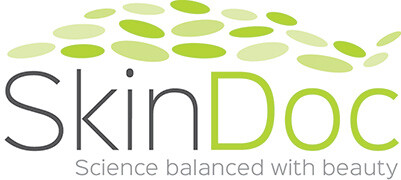
6 Skincare Habits to Help Clear Acne: Advice from Dr Jennifer Yip of SkinDoc
Dealing with acne can be frustrating, especially when breakouts persist despite treatment. Acne has multiple causes, and finding the right approach takes time. However, healthy skincare habits can help you manage acne effectively alongside any prescribed treatment.
Here are six practical at-home skincare habits recommended by Dr Jennifer Yip to support your acne treatment journey.
1. Gently Cleanse Your Skin Daily
Keeping your skin clean is essential, but over-washing can do more harm than good. Aim to wash your face twice a day—once in the morning and once before bed—and always cleanse after heavy sweating. Use a gentle, non-abrasive cleanser applied with your fingertips. Avoid scrubbing with washcloths, sponges, or exfoliating tools, as these can irritate your skin and trigger more breakouts.
2. Choose the Right Skincare Products
The products you use on your skin matter. Look for gentle, alcohol-free skincare products and avoid astringents, toners, or harsh exfoliants that can strip the skin’s natural oils. These products may dry out your skin, which can worsen acne by causing your skin to overproduce oil. Stick with moisturisers and sunscreens labelled “non-comedogenic” or “won’t clog pores” to prevent further breakouts.
3. Shampoo Regularly to Manage Oil
Your hair’s oil can travel to your face and contribute to acne, especially around the forehead and hairline. If you have oily hair, it’s important to shampoo regularly—possibly more often than usual. Also, keep hair away from your face as much as possible to prevent the oils from aggravating your skin.
4. Stick to Your Treatment Plan
Consistency is key when treating acne. It’s common to feel frustrated and switch products frequently, but doing so can irritate your skin and lead to more breakouts. Acne treatments take time to show results—sometimes several weeks to a few months. Stay patient and follow the treatment plan recommended by your dermatologist.
5. Avoid Touching Your Face and Popping Pimples
Touching your face throughout the day transfers dirt, bacteria, and oils to your skin, potentially triggering breakouts. While it’s tempting to pick, pop, or squeeze pimples, resist the urge. Popping acne not only delays healing but also increases the risk of scarring and dark spots (post-inflammatory hyperpigmentation). Keep your hands off your face to help your skin heal faster and reduce the risk of complications.
6. Avoid Sun Exposure and Wear Sunscreen
Excessive sun exposure can worsen acne and increase your risk of skin cancer. Additionally, some acne medications make your skin more sensitive to UV rays, heightening the risk of sunburn and damage. When heading outdoors, apply a broad-spectrum, water-resistant sunscreen with an SPF of 30 or higher to all exposed skin. Look for sunscreens labelled “non-comedogenic” to ensure they don’t clog pores. Wearing sun-protective clothing or items with an ultraviolet protection factor (UPF) can provide even more protection.
Acne Takes Time to Clear – Be Patient and Get Support
Acne treatment isn’t always a quick fix, and it may take some time before you notice significant improvements. If breakouts persist despite following these tips, it might be time to consult a board-certified dermatologist. A dermatologist can adjust your treatment plan, address underlying causes, and help prevent future scarring or pigmentation issues.
Remember, a consistent skincare routine and the right treatment approach will pay off in the long run. Stick to the basics, and don’t hesitate to seek professional guidance when needed.
By following Dr Jennifer Yip’s skincare habits, you can better manage acne and promote healthier, clearer skin over time.
